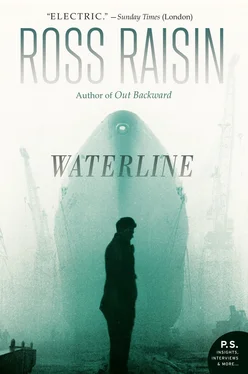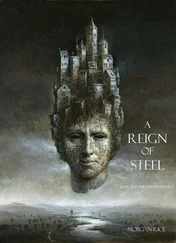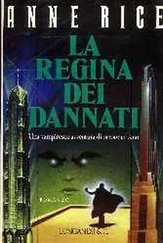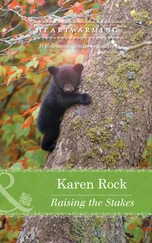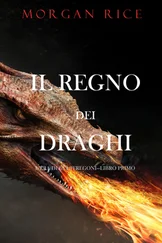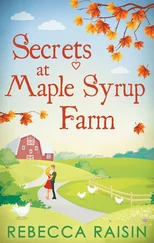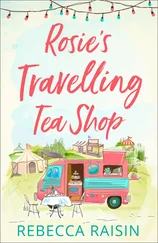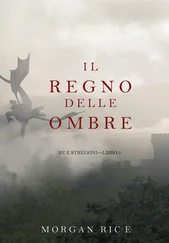Ross Raisin - Waterline
Здесь есть возможность читать онлайн «Ross Raisin - Waterline» весь текст электронной книги совершенно бесплатно (целиком полную версию без сокращений). В некоторых случаях можно слушать аудио, скачать через торрент в формате fb2 и присутствует краткое содержание. Год выпуска: 2012, Издательство: Viking, Жанр: Современная проза, на английском языке. Описание произведения, (предисловие) а так же отзывы посетителей доступны на портале библиотеки ЛибКат.
- Название:Waterline
- Автор:
- Издательство:Viking
- Жанр:
- Год:2012
- ISBN:нет данных
- Рейтинг книги:3 / 5. Голосов: 1
-
Избранное:Добавить в избранное
- Отзывы:
-
Ваша оценка:
- 60
- 1
- 2
- 3
- 4
- 5
Waterline: краткое содержание, описание и аннотация
Предлагаем к чтению аннотацию, описание, краткое содержание или предисловие (зависит от того, что написал сам автор книги «Waterline»). Если вы не нашли необходимую информацию о книге — напишите в комментариях, мы постараемся отыскать её.
Waterline — читать онлайн бесплатно полную книгу (весь текст) целиком
Ниже представлен текст книги, разбитый по страницам. Система сохранения места последней прочитанной страницы, позволяет с удобством читать онлайн бесплатно книгу «Waterline», без необходимости каждый раз заново искать на чём Вы остановились. Поставьте закладку, и сможете в любой момент перейти на страницу, на которой закончили чтение.
Интервал:
Закладка:
~ ~ ~
It is going to be another hot day. Already there are people putting up parasols and windbreakers on the beach, arranging cool boxes and pulling down trousers. There is not much wind yet, but the light breeze that comes off the sea is welcome as he jogs along the uncrowded promenade, past hot-dog vans and ice-cream stalls whose shutters are now being opened and awnings stretched out.
Where the promenade angles toward the town, he turns away onto the beach. He wipes his forehead, looking out over the sea: small still boats moored in the harbour, gently flapping banners mounted on buoys to advertise sea trips, hotels, the amusement arcade. The pleasing crunch of pebbles under his trainers. He continues down the beach, enjoying the stillness of the early morning. Seagulls. Waves sucking back through the shingle. A circle of pensioners doing knee lifts. Further on, along the base of the high wall — above which a line of bars and clubs looks out onto the sea — there is plenty of evidence of the previous night: broken pint glasses, cigarettes, fish-and-chip wrappings, a belt. He smiles, stepping up his pace as the beach arcs round and a long stretch of coastline comes into view — the pier jutting into the ocean, and, in the distance where the beach has ended, miles and miles of rocks and landslips and high, windswept farmland.
He has a sweat on now, continuing along the base of the town wall. He approaches a part of the beach where the pebbles thin out to reveal small patches of sand. On one of these, a short way ahead of him, there is a body reclined against the wall. He begins to swerve around it, keeping the same speed, until he is almost alongside, at which point he slows, turning to look at the man. Something unnatural about the way his body is positioned. Bent double; unmoving. It is fairly common on his Sunday-morning runs to see late-night revellers passed out on the beach, but this man is clearly homeless; that much is obvious from the state of his clothes. He is wearing no shoes or socks and his feet are hugely swollen and purple, a dirty red woollen hat pulled down over his face, which is bruised and bloodshot, a pink scar running down his cheek and neck and under his coat. He stops, just for a moment, and then begins again into a jog, following the brief wet curve of sand over a stream before it turns again to pebbles, and he continues on towards the pier, where the dim drone and convulsing lights of the amusement arcade have already started up.
Acknowledgements
I would like to thank Mary Mount and Peter Straus, my editor and my agent, for making it easy, even the difficult bits. Also to Joe Pickering, Jenny Hewson, and everybody else at Penguin and RCW, all of whom I feel very fortunate to work with.
For his early advice on the book that I thought this would be, thank you to Paul Chambers, and for what it did become, to Corin Pilling at the Cardinal Hume Centre, and Simon Hughes, together with all the staff and residents at St Mungo’s Mare Street.
I am grateful to Bruce Biddulph for all that you shared with me, and to John Dolan and Jim Moohan of GMB for your willingness to help with my research. Furthermore, and especially, to Jimmy Cloughley and all at Clydebank Asbestos Group, whose aid and advice continue to support so many of the victims of asbestos and their families.
To my family, and the Tiptons; to David Vann (who had the idea for the title); and, more than anybody else, to Tips. Some of this book comes, however indirectly, from you. And thank you for helping me to make it better, even down to the bloody acknowledgements.
P.S. Insights, Interviews & More.
About the Author
A Conversation with Ross Raisin
ROSS RAISIN’S FIRST NOVEL, Out Backward , was nominated for eleven awards, including the Guardian First Book Award, the John Llewellyn Rhys Prize, and the IMPAC, and was awarded the Sunday Times Young Writer of the Year Award and the Betty Trask Award. He is an occasional contributor to the Guardian and holds an MFA from Goldsmiths College in London, where he resides.
Describe your childhood.
As a child, you would most likely find me walking on a hill in oversized grey clothing, which may sound idyllic to some, but when you’re thirteen you’d probably disagree. I think because I was always quite skinny, my parents tried to dress me in large shirts as a disguise, and they thought I didn’t like bright colors, so these clothes were usually grey. I am today wearing a medium-size purple jumper.
Your name, tell us about your name.
My full name is Ross Radford Raisin, which never fails to amuse people. I hope I’m not giving a bad impression of my mum and dad here. I should just say that they are wonderful, supportive people with a sense of humor, hence the name, which I have always liked. I’m not sure where Raisin comes from, though, as I don’t know much about my dad’s side of the family. I know more about my mum’s: they come partly from Argentina, and my great-grandmother was forced to marry her uncle, so she escaped to Turkey and had an affair with a fighter pilot.
When did you first take to writing?
I’m not sure that I have yet. I find writing difficult and slow.
What were you reading in your teens?
Horror — James Herbert, Dean R. Koontz, Stephen King, Ben Elton, and Graham Greene.
Which football team do you root for?
Root. Well, I root for Bradford City. I begin every day by looking at the club website for news (our reserves just lost to Huddersfield, our local rivals, who, even though a division above us, average much smaller crowds). You might not know much about Bradford City — they are in the bottom division of the English League — so here is a potted recent history:
1995: Mid-table in the third division, a not-so-local, fat, rasping businessman takes over the club. His name is Geoffrey. He promises us a future beyond our wildest dreams. We are a snowball rolling down the hill, he tells us. He invests money into the club, lots of money. He argues with the Huddersfield chairman in a live radio discussion. We love him.
1996: We are promoted to the second division.
1997–1999: More and more money invested in the club. We start to dream of the Premiership. We don’t think much about where the money is coming from. We are a snowball rolling down the hill.
1999: We are promoted to the Premiership, captained by our star player, our hero, Stuart McCall.
2000–2001: We enjoy a magical time in the top division; we go to Manchester United (and lose 4–0); we buy expensive, celebrated, glorious players, who come from places like Italy, not because we are paying them £20,000 a week, but because they love the cold, windy, ex-industrial feel of the city.
2001: We are relegated. Our manager leaves. There are allegations that Geoffrey has been trying to pick the team. We begin to realize that the money has been borrowed, at high interest rates. Our snowball is at the bottom of the hill, thawing, unpleasant things it picked up on the way sticking out from it.
2002–2007: Geoffrey leaves, a rich man (allegedly, allegedly). We are relegated (twice), close to bankruptcy, crowds down 300 percent, the banks want their money back, we have no money or, at some points, it seems, players.
2007: In the bottom division, it is the end. But then Stuart McCall (the hero) comes back as our manager. A local businessman takes over as chairman and clears the club’s debts with his own money (allegedly). There is a surge in ticket sales, we begin the season well, previously disgruntled supporters feel fresh hope and start looking at the club Web site every morning. We are a snowball rolling down the hill. . I look forward with interest to seeing how much of this gets edited, and how much of it is libelous.
Читать дальшеИнтервал:
Закладка:
Похожие книги на «Waterline»
Представляем Вашему вниманию похожие книги на «Waterline» списком для выбора. Мы отобрали схожую по названию и смыслу литературу в надежде предоставить читателям больше вариантов отыскать новые, интересные, ещё непрочитанные произведения.
Обсуждение, отзывы о книге «Waterline» и просто собственные мнения читателей. Оставьте ваши комментарии, напишите, что Вы думаете о произведении, его смысле или главных героях. Укажите что конкретно понравилось, а что нет, и почему Вы так считаете.
